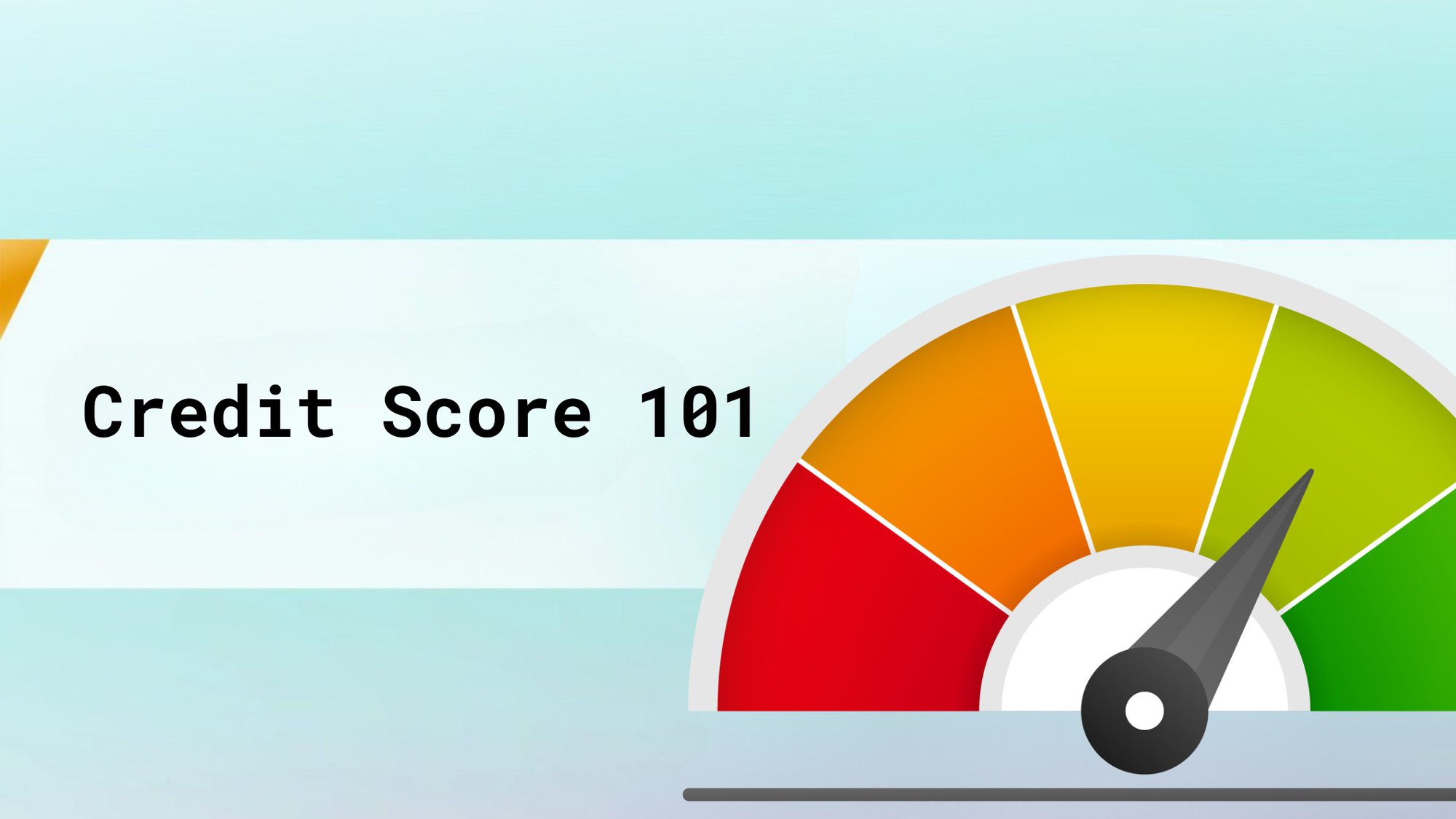
Credit Score 101: A Crash Course in Financial Health
Author Taiwo Temitope-Adesope
Credit plays an increasingly important role in the evolving financial landscape of Nigeria. As more Nigerians gain access to formal financial services, understanding the credit system becomes crucial for personal financial health and empowerment. In this article, Credit Score 101, we will explore the concept of a credit score and how it can significantly impact how you navigate the financial terrain and make informed decisions.
With a young population eager to tap into economic opportunities, credit facilitates transactions and provides capital to grow businesses. Therefore, developing credit knowledge enables Nigerians to build strong credit profiles that open doors for better loan offers, asset acquisition, and even job prospects.
This blog post will demystify credit in the Nigerian context. We trace the evolution of credit, explore different credit types, and provide tips for building creditworthiness. By understanding credit, Nigerians can leverage it as a strategic tool for financial inclusion and prosperity.
Credit Score 101: What is Credit? A Nigerian Perspective
Credit refers to the ability of a lender to provide a borrower with cash, products or services in exchange for future repayments. The lender relies on the borrower's creditworthiness or ability to fulfil debt obligations.
In Nigeria's largely cash-based economy, credit enables businesses and individuals to complete transactions despite limited liquidity. With only 6% of Nigerians owning credit cards, informal lending systems continue to prevail. However, increased digitalization is expanding access to instant loans, revolving credit, and credit cards.
Creditworthiness unlocks better interest rates and loan amounts to grow wealth. Banks and other lenders determine creditworthiness based on an applicant's creditworthiness unlocks and credit score. Therefore, cultivating positive credit behaviour and maintaining a strong credit profile enhances financial health.
Tracing the Roots: A Brief History of Credit in Nigeria
Indigenous credit systems in Nigeria, like 'esusu' and 'ajo' facilitated peer-to-peer lending long before modern banking was introduced. In 1892, the African Banking Corporation became Nigeria’s first bank. Over the next century, credit evolved from basic cash loans to revolving facilities, cards and digital lending.
With 77% of adults financially excluded, most Nigerians continue using informal lending for daily needs. However, increased mobile penetration is enabling fintech innovation around digital loans, alternative credit scoring, and flexible repayments. Though still nascent, technology-powered credit holds immense potential for financial inclusion.
As Nigeria’s credit ecosystem integrates with global systems, developing credit knowledge is key for Nigerians to fully benefit. Learning how to strategically build credit can help individuals and MSMEs access opportunities for growth.
Understanding the Different Types of Credit Available in Nigeria
There are four main types of credit facilities available in Nigeria:
Revolving Credit
Revolving credit, like credit cards and overdraft facilities, allows borrowers flexibility in repayment. The credit limit replenishes with repayment, so borrowers can continue using available credit. Interest rates are charged monthly on outstanding balances.
Credit/Charge Cards
Credit cards are gaining popularity in Nigeria as more urban professionals embrace digital banking. They provide quick access to credit, rewards programs, and installment plans for large purchases. However, credit cards can be debt traps if used irresponsibly.
Installment Credit
Installment credit provides fixed lump-sum loans repaid over set durations in equated monthly installments (EMIs). It is ideal for large expenses like home loans, car loans, and business capital. Borrowers should compare interest rates across multiple lenders.
Non-Installment/Service Credit
Service credit facilitates the purchase of ongoing services like electricity, telephone and cable TV. Bills are generated monthly, and borrowers repay as per the agreed terms. However, late payments lead to service disruption along with fines.
The Dangers of Store Cards and Quick Loans in Nigeria
Two emerging credit facilities to watch out for are retail store cards and instant digital loans.
Store cards seem tempting for frequent shoppers, but carry processing fees and high interest rates of over 40% according to EFInA. Quick loans through unregulated apps are even riskier, with some charging interest rates up to 400% annually. Desperate borrowers can easily get trapped in ballooning debt.
Before accepting any credit facility, scrutinize the full terms like interest rates, late fees, tenure and eligibility for balance transfers. Understand the true cost of borrowing and your repayment capacity before taking on debt.
Practical Steps to Building a Strong Credit Profile in Nigeria
Here are some tips for Nigerians to establish robust creditworthiness:
- Make timely repayments on all debts to demonstrate reliability. This builds a positive credit history.
- Start small by taking low-risk credits like secured cards or microloans. Repay diligently to gain bigger credit limits.
- Have co-signers with strong credit records expedite loan approvals while you build your profile.
- Only apply for credits you urgently need, so new inquiries don’t reduce your score temporarily.
- Maintain low credit utilization – high balances close to your limit portray risk.
- Check your credit report regularly and dispute any errors with the bureaus.
- Leverage technology tools to monitor your credit score and get alerted to suspicious activity.
Demystifying Credit Card Usage: Interest, Grace Periods, and More
Maximizing benefits and minimizing risks of credit cards requires understanding key terms:
- The interest rate determines how much you pay to borrow money. The lower the rate, the better.
- Grace period is the time you get to pay off balances before interest kicks in, usually 20-25 days.
- The Annual Percentage Rate (APR) considers the interest rate and fees to illustrate true costs.
- Making just the minimum payment leads to more interest expense over time. Pay off balances quickly.
- Balance transfers to a lower-rate card can save on interest payments. But check transfer fees.
- Credit limits should be utilized conservatively to avoid crossing 30% utilization.
Your Credit Score 101: The Key to Financial Opportunities in Nigeria
In Nigeria, credit scores range from 300-850 and indicate your creditworthiness. The FICO score used in Nigeria ranges from 300-850:
- 300-579 – Poor
- 580-669 – Fair
- 670-739 – Good
- 740-799 – Very Good
- 800-850 – Excellent
Higher scores unlock better loan terms, lower interest rates, approval for prime mortgages and even better job opportunities. Nigerians should monitor scores and aim to build them over time.
Scores are calculated based on:
- Payment history – Represents 35% of the score. Timely payments portray reliability.
- Credit utilization – 30% of score. Using less than 30% of available credit is ideal.
- Length of credit history – 15%. A longer history builds credibility.
- Credit mix – 10%. Using different credit types shows the ability to manage diverse accounts.
- New credit – 10%. Too many new accounts can lower scores temporarily.
Get your credit score report on nairaCompare here!

Making Credit Cards Work to Your Advantage
- Pay off balances in full each month to avoid interest charges.
- Opt for cards with rewards programs relevant to your spending. Accumulate and redeem points.
- Use cards for large purchases to enjoy benefits like insurance, warranties, and instalment plans.
- Consolidate spending on one card to quickly accumulate rewards.
- Check policies on burnt or stolen cards. Opt for cards with zero liability.
- Review statements regularly and report unauthorized charges immediately.
Safeguarding Your Credit in the Digital Age
As digital payments rise, Nigerians are vulnerable to data breaches, identity theft and loan fraud. To stay protected:
- Refrain from sharing personal and payment information online or via sms.
- Review account statements frequently to spot irregularities immediately.
- Sign up for credit monitoring services to get alerts whenever your credit report is accessed.
- Only make online payments through secure sites and apps. Check for 'https' and padlock icon.
The Future of Credit in Nigeria: Trends and Predictions
Rapid digitalization is poised to expand credit access through:
- Seamless digital loan applications via apps and USSD codes, eliminating paperwork.
- Alternative credit scoring using non-traditional data like mobile top-ups to broaden access.
- Digitized P2P lending platforms connect lenders and borrowers directly.
- AI-powered instant credit approval based on digital financial footprint.
- Open banking allows integration of bank data with third-party apps to analyze creditworthiness.
As Nigeria's credit ecosystem evolves, being informed, vigilant and strategic will help maximize opportunities while minimizing risk. Financial literacy is crucial.
Conclusion
This post explored the multifaceted landscape of credit in Nigeria – tracing its evolution, demystifying key concepts, and equipping readers to strategically build strong credit. As Nigeria's youthful population adopts digital banking, understanding credit will be key to unlocking access to the formal financial system. Credit presents both opportunities and risks. By becoming informed users of credit, Nigerians can enrich their financial health and prosperity.
About Author

Taiwo Temitope-Adesope
Taiwo is a passionate storyteller and strategist dedicated to empowering women and crafting compelling narratives. A First-Class graduate in Mass Communication from Covenant University, she specializes in writing, public relations, and digital marketing. As a Content Manager at Suretree, she drove a 50% increase in web traffic through SEO and boosted website engagement by 60% in just four months. Her leadership experience includes serving as Public Relations Officer for the Covenant University Student Council and contributing to impactful volunteer initiatives. With expertise in strategic thinking and business acumen, Taiwo continues to create stories that inspire confidence and imagination.
.png?width=1615&height=444&name=nairaCompare%20Christmas%20logo%20(PNG).png)






.jpg?width=352&name=All%20Your%20Questions%20Answered%20-%20Fixed%20Deposits%20in%20Nigeria%202%20(2).jpg)

